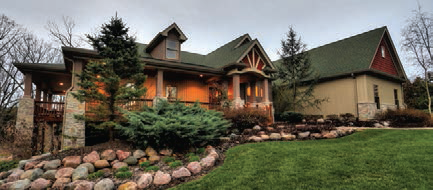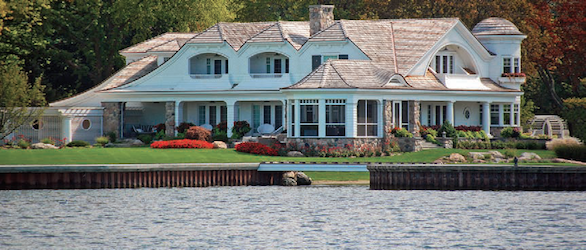Q: What would you consider to be the four most important things to consider when buying a home?
A: When searching for a new home, it’s essential to figure out what’s important to you before you begin. Factoring in work, children, pets, hobbies, and more into your perfect home equation might seem like a daunting task, but it will make the home-hunting process much more enjoyable. Understanding your long-term goals and family needs will help ensure you don’t buy into something you’ll grow out of before you planned. I tell buyers to prioritize location, lot, floor plans, and curb appeal over everything else. Small things like paint color or countertops can be changed, but you can’t just pick up a house and move it into your preferred school district or put in a pool on a lot with almost no backyard. By keeping your preferences in these four areas at the top of your must-haves list, you can be sure you’re making a smart purchase when it comes time to sign on the dotted line.
1. Location
It’s no secret that you have to consider location in your home search, but do you know what to look for? It all comes back to what’s important to you. If you have kids, you’ll want to be in a good school district. Do you want privacy, or are you looking to throw block parties with your neighbors throughout the summer? Proximity to work and places you frequently visit might be imperative for you, or you might be the type that enjoys the time spent on the road.
Sit down and make a list about everything you love about your current location, and then write down what you’d change if you could. Highlight things you simply refuse live without and put a checkmark next to anything that would be nice to have, but isn’t necessarily a deal-breaker, on both sides of the list. This way, you’ll be prepared to answer any and all questions about your next home’s location.
2. Lot
You can’t build on or change land you don’t own. That’s why it’s so important to include any potential outdoor projects you’d like to take on in the future in your decision. Are you looking to put in a pool? Have you always wanted a sunroom? If a house you’ve got your eye on doesn’t have one already, then be sure the lot is large enough to accommodate and add-on.
Apart from renovations, you should always think about what amount of yard maintenance you’re willing to take on. If it’s important for you to know where the sun hits throughout the day, be sure to figure out which direction the lot is facing. You can always update a home to fit your exact needs, but you can’t build a bigger yard.
3. Floor Plans
Deciding whether or not a home will work for you isn’t just about choosing what style of house you prefer. A home’s floor plan will dictate the flow of your daily life, which is why it’s so important to find a floor plan that best fits your lifestyle. Do you enjoy entertaining? Do you have a family with small children? Are you looking to expand your family in the future? If so, you might consider a two-story home with an open-concept floor plan, a master suite that’s on the second floor, and extra rooms—but that’s just one option. Figure out what configurations could work for your family, and then go from there.

You can always tear down walls or extend a room, but if you’ll have to work too hard to make a home fit your current lifestyle as well as your future plans, there’s probably a better option waiting for you.
4. Curb Appeal
When it comes to updating the exterior of a home, there’s no end to the possibilities, but finding a home with great curb appeal can save you time and money in the long run. Depending on your price range, look for homes with a three-car garage and popular features like brick and stone work. If you like the look of siding over brick, keep an eye out for homes with James Hardie siding. It’s a better option than vinyl siding, and will ensure your home keeps a fresh, new look for years to come.
It can be difficult to widen your perspective when looking at a singular home. By identifying your specific needs and focusing on eliminating the homes that don’t fit your lifestyle from the start, you’ll be able to look past those easily changed minor details and choose the home that’s best for you.




